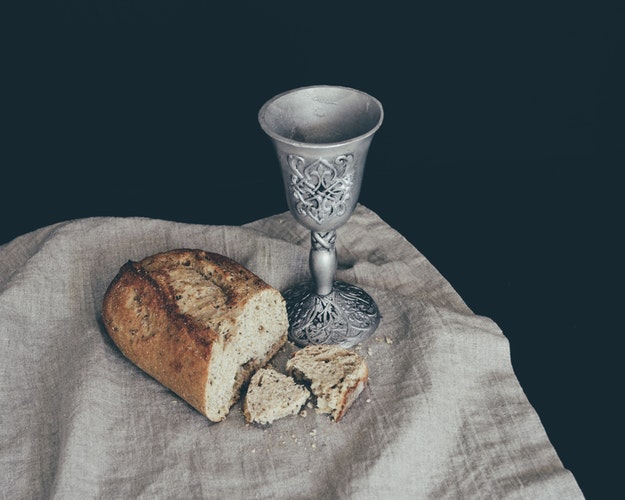Do you enjoy partaking of Communion each week? Have you ever wondered why we do this every week? Have you ever struggled with teaching your children about Communion, or even understanding it yourself? Have you have ever gone through the Sunday morning motions of receiving Communion only to go back to your seat thinking, “Why do we this? What’s the point? Does it really benefit anyone? And why don’t I feel different when I take it?”
There is a considerable amount of confusion surrounding Communion (a.k.a., the Lord’s Supper). It is often misunderstood, and even more often under-understood. Therefore, this is the first of a series of blog posts of answers to some questions that I have been asked about Communion. It is my prayerful hope that these blog posts will be beneficial for you by answering nagging questions you might have, by helping you to think more clearly and deeply about this special gift from God to us which we partake of every week, by perhaps correcting some of your faulty thinking with regards to Communion and even the gospel itself, and by enriching your understanding of and appreciation for the unmatched love of God for you in Christ.
What is an “Ordinance”?
The Short Definition
The religiously technical use of the term, ordinance, is usually applied to Baptism and Communion (the Lord’s Supper). As such, the word refers to a Divinely instituted ceremonial practice of spiritual meaning and benefit. Both Baptism and Communion were ordained by Jesus Christ Himself (Baptism – Matthew 28:16-20; Communion – Matthew 26:26-29; Luke 22:14-23; I Corinthians 11:23-26). These are given as commands to be obeyed.
Ordinances Are Sacraments
The word Sacrament is used to speak of the same thing, yet often from a different perspective. In Roman Catholicism it is applied to 7 things, including marriage, penance, and Holy Orders. Most Protestants only see Baptism and Communion as Sacraments, and have historically called them Ordinances for two reasons: 1) To distinguish their beliefs from the Roman Catholics, and 2) To put the emphasis on the believer expressing his faith and submission to Christ. However, “Sacrament” is not a bad word. And it puts the emphasis more on God renewing His promise and imparting His grace to the believer. So, when speaking of Communion, both the word Ordinance and the word Sacrament can be used, for both are true and helpful.
No Lifeless Rituals
The two Ordinances/Sacraments are physical signs of spiritual realities. These are practical and tangible ways for those who believe in Christ to express their humble faith in, open identification with, and glad submission to Christ as Savior and Lord. And they are also tangible ways for these believers to receive from God both a renewing of His covenant promises to them and a strengthening of their belief in Christ. These benefits come to us by means of the gospel of Christ being expressed visibly in the ordinances; most specifically focusing on the death and resurrection of Christ as the sealing of the covenant promises of God for all those who repent and trust in Christ alone.
*(This is an edited reposting of an older post).

